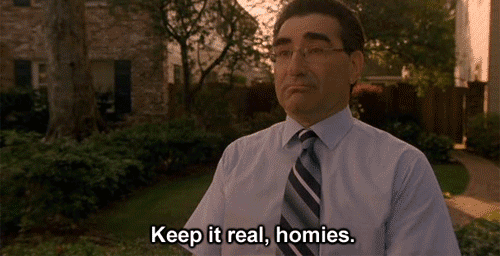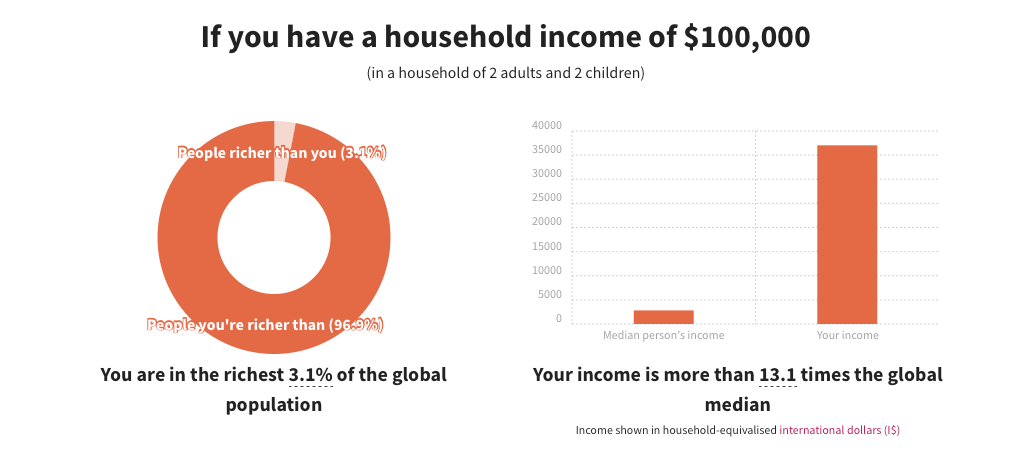chasing answers newsletter #41
The "uncool" parent, Giving what we can, The web of our existence
“Whether the borders that divide us are picket fences or national boundaries, we are all neighbors in a global community.” - Jimmy Carter
Happy Sunday!
I’m a really boring person.
I know this. And I’m ok with it. I don’t like crowds, parties, or “being where the action is.” I prefer watching from a distance or, even better, being completely unaware something is going on at all.
Last weekend was Super Bowl Sunday. When I was younger and less boring, I would have a huge Super Bowl party at my house that would last until the work day started on Monday morning. This year, I didn’t even realize it was gameday until my wife asked that morning if I was going to watch the game.
I didn’t. It was a typical Sunday night of ensuring my daughter had homework done for Monday and getting ready for the work week ahead.
This didn’t sit well with my daughter. She had been at a friend’s house that afternoon, and they were preparing for a big party that night. My daughter, who is like me in almost every way possible, is different in one big way. She likes action.
She loves parties, crowds, and being in the middle of it all. When my wife picked her up and brought her home, she was quiet and standoffish. After a few minutes of me prying, she finally blurted out, “You guys are boring. Why can’t we go somewhere fun tonight? Why can’t we have a party?”
She’s fucking five.
I knew the day was coming when I would become that “uncool” parent. I did not think it would be before my daughter’s sixth birthday.
I need help being “cool,” guys. If anyone is up on what the kids are doing these days, send tips my way. Keep in mind I reserve the right to ignore any and all suggestions.
Giving What We Can
One of the added benefits of taking the Learning For Action course through Terra.do is all the great informational websites I’m learning about.
One of them is givingwhatwecan.org.
They are an organization that researches non-profits and charities to help people determine where they can donate money to generate the most impact. They also present information from a wide array of studies about giving and its positive effects on everyone involved.
But, my favorite part of the website is the How Rich Am I? section. It can be easy for those of us in the U.S. or other wealthy countries to forget how fortunate we are. In this section of the website, you can put in what country you are in, how much you make, and how many adults and children live in your home, and it will tell you where you rank in terms of global income.
The image below shows a family of four with a household income of $100K in the United States.
You’re looking at that correctly. If those were your stats, you’d be in the top 3.1% of the global population. And your income would be more than 13 times the global median. When I see shit like this, I instantly feel like the world’s biggest asshole.
Not because I’m some money-hoarding fat cat. I’m happiest when I’m staying in a $50 camping tent in the middle of the wilderness, bathing in a lake, and shitting in a hole in the ground. But the fact that my daughter and I do that for fun, and there are kids on this planet who have no choice but to live that way, hurts my fucking head.
And the fact that some of what we do here in the U.S., in many cases, contributes to those kids living that way is even more messed up. One of the most eye-opening things I’m learning about climate change is that you can’t discuss it without also discussing climate inequality.
It’s a vicious cycle where the countries of the global north, which are already much wealthier than those of the global south, cause much of climate change. But the countries impacted the most, from both a humanity and financial perspective, are those of the global south, so this widens the gap even further, and the system repeats itself.
While $100K is a lot of money, I don’t think those of us in the U.S. would consider ourselves wealthy if we were making $100K/year with a family of four. Because of this, it can be hard to imagine the scope of impact that small acts of giving can have in different parts of the world.
In the above example, if you donated 10% of your income, you would drop from the top 3.1% all the way down to……….....the top 3.8%
Yeah. At $90K/year and a family of four, you would still be in the top 3.8%
And what could that $10K do when put to use in less fortunate areas of the world?
A lot.
I’m not writing this to guilt people into donating money or make them feel bad about their current situation.
I’m writing it because at the center of climate change lies the issue of climate inequality. And at the center of climate inequality lies an abundance of problems with our current global economy.
I believe if we are to solve climate change, we will need to tackle many, if not all, of these problems, and many of us will have to reframe the way we look at things. We need to do our best to see things from a perspective that is not only different from ours but almost unfathomable compared to what we are accustomed to.
Websites like givingwhatwecan.org can help with this. They can help shed light on some of these disparities that are often overlooked. If we can at least get information like this in front of people and get them to think about it, it can broaden the lens through which we all see this world and the global issues we face.
Best of Twitter
I’m awful at keeping in touch with people. I blame it on being busy, being an introvert, and other “acceptable” excuses. And those things probably do play a part.
But, if I’m being honest with myself, the biggest factor is most likely that I don’t value relationships as much as I should. They really are the web holding human existence together. But in my day-to-day life, I do a terrible job of acknowledging this and treating them as such.
This tweet from a gentleman whose father was a photographer who worked with celebrities and politicians around the world shows me how much better I can do in this department. Among the politicians his father worked with was Jimmy Carter, the former U.S. president and world-renowned humanitarian, who just this week, unfortunately, announced he would be entering hospice care.
When his dad died last month, this guy's family received a letter from President Carter. Even more impressive, if you read through some of the comments on the tweet, you will see others who had similar experiences with the former president.
I have no excuses. If a former President of the United States has the time to form these small connections and then nurture and maintain them over the years, so do I.
I hope you all have a great week!
As always, I would love to hear from you.
If you read something here that resonates with you, leave a comment.
If you would like to discuss something further, shoot me an email.
If there was something you absolutely hated, @ me on Twitter.
And if there is something you think I should be writing about, please let me know.
If you want to see more of my work, visit chasinganswers.co.
Thank you for reading, and if you liked what you read, please share.
randy









Love reading your stuff. Think you are a totally cool guy. But, alas, I am no longer five.
Ha, randy you will always be cool to your internet friends. I always thought my parents were uncool, and now they are way cooler than me hanging out in their new retirement community. I think the trick is to just be you, it’s cooler to just be yourself 😎